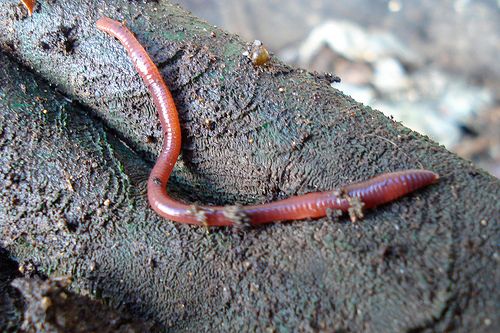Acquire Red Wiggler Worms - Ideal for Composting and Gardening
Acquire Red Wiggler Worms - Ideal for Composting and Gardening
Blog Article
Red Wiggler Worms Demystified: Unlocking the Secrets of Vermiculture for Greener Living and Nutrient-Rich Soil
In the realm of sustainable techniques for enhancing soil high quality and promoting eco-conscious living, red wiggler worms play a critical yet frequently neglected duty. These simple creatures have the exceptional capability to transform organic waste into nutrient-rich castings that work as a powerful natural plant food. By delving right into the globe of vermiculture, one can discover a variety of benefits that expand far past standard composting methods. Recognizing the complexities of caring for these worms, enhancing their environment, and utilizing their castings can bring about a greener lifestyle and much healthier soil for plants to grow.
The Role of Red Wiggler Worms
Red Wiggler worms play an important duty in composting systems by effectively breaking down organic issue into nutrient-rich castings. These ravenous eaters eat a range of organic materials, such as kitchen area scraps, backyard waste, and paper products. As they feed, the worms' digestion processes break down the raw material into a penalty, dark, and nutrient-dense product called worm castings or vermicompost.
The castings created by Red Wiggler worms are highly advantageous for dirt health and plant growth. They are rich in crucial nutrients like phosphorus, potassium, and nitrogen, which are vital for sustaining healthy and balanced plant advancement. In addition, worm spreadings include valuable germs and enzymes that aid improve soil structure, increase water retention, and enhance nutrient uptake by plants.
Benefits of Vermicomposting

It enhances dirt framework, enhances dirt aeration, and increases dirt moisture retention. Vermicompost additionally enhances the soil with vital nutrients like potassium, nitrogen, and phosphorus, advertising plant growth and overall dirt fertility.
Additionally, vermicomposting supports lasting horticulture techniques by supplying a chemical-free and all-natural choice to artificial plant foods. Red Wiggler Worms. This ecologically pleasant strategy not just enhances the dirt however likewise helps reduce dependence on hazardous chemicals, promoting a greener and a lot more lasting means of horticulture
Establishing Up a Worm Container
When developing a worm bin for vermicomposting, correct configuration is essential to ensure the success of the composting process. The primary step in setting up a worm container is selecting an ideal container. This can be a plastic bin or wooden box that offers sufficient room for the worms to move around and has appropriate water drainage openings to prevent waterlogging. Next, a bedding material such as shredded newspaper, cardboard, or coconut coir should be included in the container. This bedding offers a comfortable environment for the worms and assists preserve dampness levels.
After including the bed linens, introduce the red wiggler worms to the container. The worms must after that be supplied with food scraps such as fruit and veggie peels, coffee premises, and eggshells.
Consistently monitor the wetness levels and temperature level in the worm bin to make certain ideal conditions for the worms. With proper setup and upkeep, the worm bin will successfully convert organic waste Recommended Site into nutrient-rich garden compost for your plants and garden.
Harvesting Worm Castings
To successfully gather nutrient-rich worm castings from your vermicomposting system, an organized harvesting method is essential. When it comes time to gather the worm spreadings, there are a few vital steps to follow to make sure a successful procedure.

Troubleshooting Common Issues
Recognizing and attending to common difficulties that may develop during the vermicomposting process is important for preserving a healthy and balanced and effective worm container. One typical problem that vermicomposters click to read more encounter is overfeeding. Adding excess food scraps can lead to a buildup of dampness and level of acidity in the worm container, potentially hurting the worms. To avoid this, feed the worms in small amounts, making certain that the food scraps are adequately damaged down prior to adding more. Another concern is unpleasant odors rising from the worm container. Foul smells show anaerobic conditions, generally brought on by overwatering or poor air flow. To fix this, adjust the dampness levels by adding completely dry bedding products like shredded paper or cardboard and increase oygenation by transforming the bedding frequently.
Additionally, if the worm populace is declining or the worms show up unhealthy, maybe due to ecological stressors such as severe temperatures or pH degrees. Checking these aspects and making required modifications is vital for the health of the worms. By troubleshooting these usual issues immediately, vermicomposters can guarantee a successful and smooth vermicomposting procedure while maintaining a flourishing worm population.

Final Thought
In final thought, red wiggler click here now worms play a critical role in vermiculture by breaking down organic issue right into nutrient-rich soil. Setting up a worm container is necessary for successful vermiculture, and gathering worm castings gives useful compost for horticulture.
As they feed, the worms' digestive system procedures break down the natural issue into a penalty, dark, and nutrient-dense material known as worm spreadings or vermicompost.
The castings generated by Red Wiggler worms are extremely helpful for soil health and plant development. Including excess food scraps can lead to a buildup of dampness and level of acidity in the worm container, potentially damaging the worms.Furthermore, if the worm population is decreasing or the worms appear unhealthy, it can be due to ecological stressors such as extreme temperature levels or pH degrees. Setting up a worm container is crucial for effective vermiculture, and gathering worm spreadings gives valuable garden compost for horticulture.
Report this page